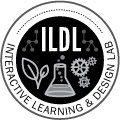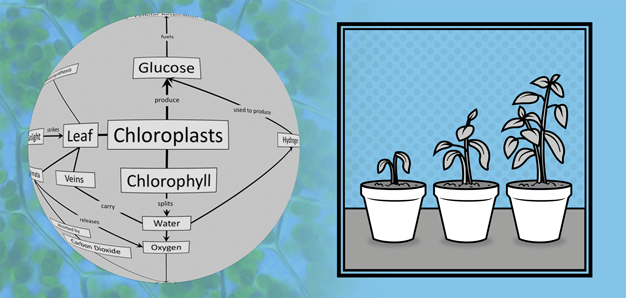Fostering Deep Learning of Complex Biology for Building Our Next Generation’s Scientists
– Funded by The National Science Foundation’s DRK-12 Program.
Goal: Help middle school students, particularly in rural and underserved areas, develop deep scientific knowledge and knowledge of the practices and routines of science.
Today’s citizens face profound questions in science: Is it a good idea to submit one’s DNA for genetic testing to screen for potential future diseases? Which forms of clean energy are most efficient and have the least impact on the environment? How can we grow food plants sustainably in changing environments?
Life sciences, especially Biology, are of particular importance for addressing some of today’s complex problems, such as sustainability and food production, biofuels, and carbon dioxide and its effect on our environment. Although knowledge in the life sciences is of critical importance, this is an area in which there are significantly fewer studies examining students’ conceptions than in physics and chemistry.
To address these concerns, research teams have developed an innovative learning environment called Bio-Sphere. Each Bio-Sphere unit presents a complex science issue in the form of a design challenge that students solve by conducting experiments, using visualizations in an etextbook, and connecting with the community. The units, aligned with the Next Generation Science Standards (NGSS), will provide greater coherence, continuity, and sustained instruction focused on uncovering and integrating key ideas over long periods of time. A major strength of Bio-Sphere is the inclusion of hands-on design and engineering in Biology, a field in which there are fewer instances of curricula that integrate engineering design at the middle school level.
Phases:
- Bio-Sphere materials are developed
- Enactment in local schools and refine design
- Practical Expansion: How can we bring this innovative design to life in differing classrooms?
- Comparison of implementation across classrooms
Objectives:
- Foster a cohesive understanding of science content
- Integrate science and engineering practices
- Implement units in rural and underserved areas
- Involve Parents and the community
- Understand variations in implementations across different contexts
Research Partnerships:
- University of Wisconsin – Madison
- University of North Carolina at Chapel Hill
- Auburn University
 Curriculum Units:
Curriculum Units:
- Growing Healthy Plants
- Algae Power Plant
- Make Your Own Compost!

